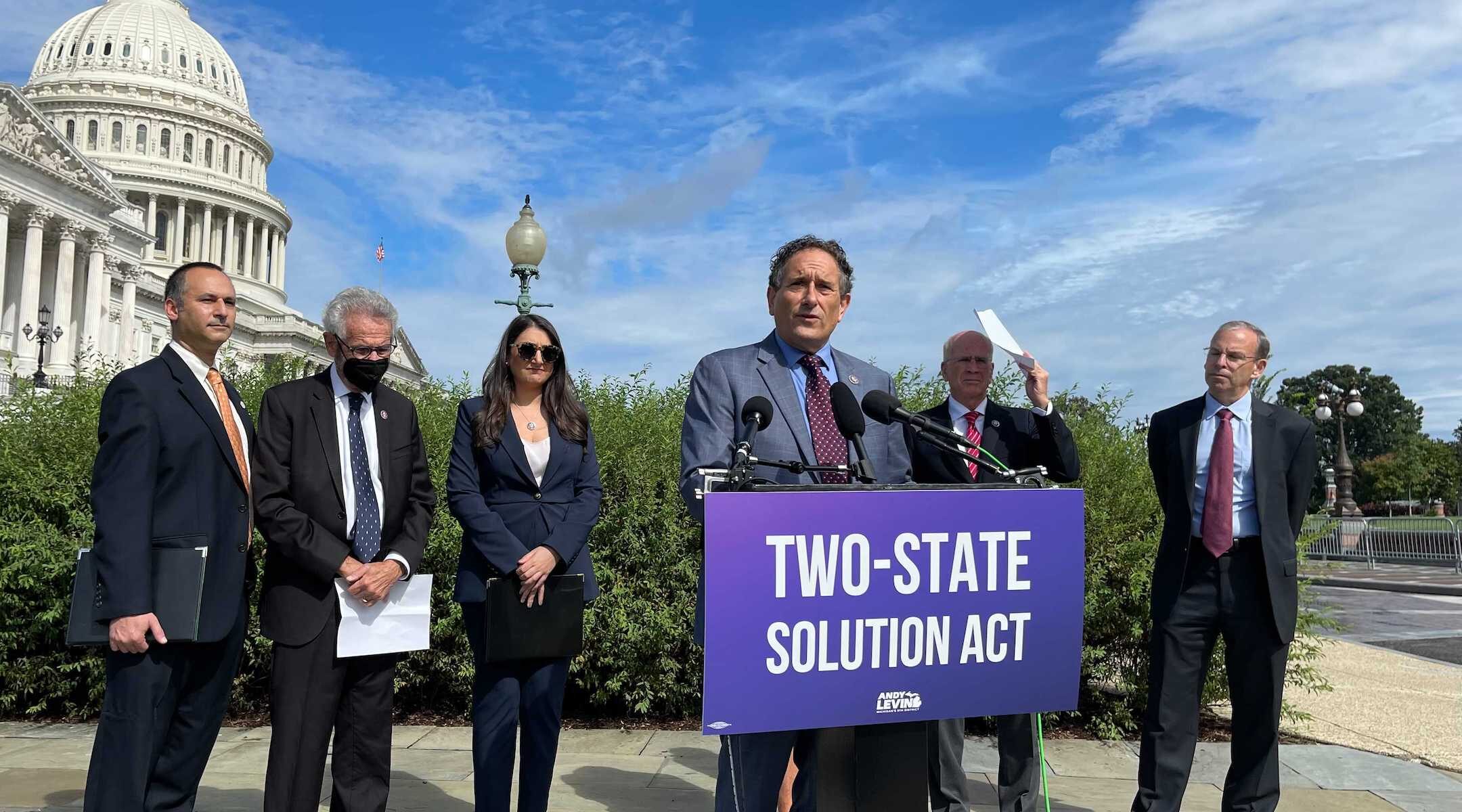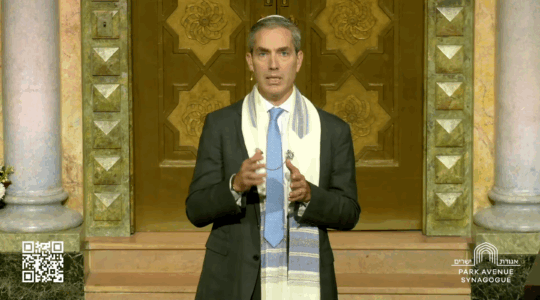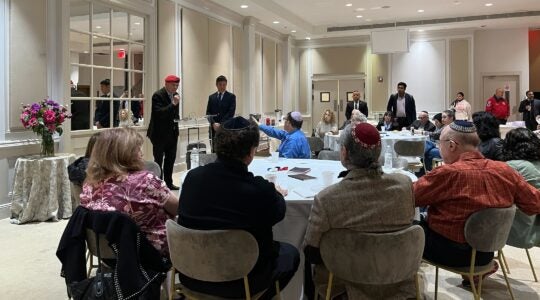WASHINGTON (JTA) — Two decades-old left-wing pro-Israel groups, Americans for Peace Now and Ameinu, are poised to merge — a consolidation of voices in the liberal Zionist camp amid Israel’s war with Hamas.
The presidents of the two small nonprofits — Americans for Peace Now’s Hadar Susskind and Ameinu’s Ken Bob — told the Jewish Telegraphic Agency in separate interviews that the merger, to be announce Thursday, made sense because the groups complemented one another: APN works advocacy in Washington and maintains ties with the Israeli peace movement, while Ameinu, Hebrew for “our people,” liaises with the broader left in the United States and engages more closely with national Jewish groups.
“The emphasis and the focus is really going to continue to be Israel, Israel-Palestine and peace,” Susskind said. “But it’s also going to be a broader agenda than what was APN’s work.”
That work has gained urgency since the outbreak of the Israel-Hamas war on Oct. 7. Ameinu has sought to counter antisemitism and hostility to Israel on the left. APN is one of the only Zionist groups to call for a bilateral ceasefire.
For the past 15 years, both groups have been overshadowed by J Street, the liberal Israel lobby that has a budget in the millions of dollars and serves as the flagship of the liberal Zionist movement in the United States. Ameinu and APN served as the lobby’s forerunners: Ameinu was originally founded as the Labor Zionist Alliance more than a century ago, and APN was founded in 1981 as the American branch of Peace Now, the Israeli left-wing movement.
They now act as ideological partners to J Street and other progressive Israel-focused groups. Ameinu’s 2022 income was $357,000 while APN’s was $1.34 million. Ameinu has a staff of one-and-a-half people, while APN has six staffers.
Straddling progressivism and the pro-Israel movement has been a hard and sometimes traumatic haul for left-wing Zionists since the war started. Many on the pro-Israel left at first found themselves appalled at the support from some quarters of the left for Hamas’ Oct. 7 massacre of Israeli civilians, which launched the war. Then, they found themselves grappling with an establishment Jewish community that was unwilling to criticize what leftists critics have said is a brutal and disproportionate Israeli response.
J Street last month declined to endorse Rep. Jamaal Bowman, a New York Democrat who has used the word “genocide” to describe Israel’s actions.
“This merger is about one thing, the capacity to have a bigger impact on the issues that we care about,” Susskind said. “Following Oct. 7 it’s more clear than ever that we need strong voices speaking up for peace and for justice.”
Americans for Peace Now’s work focuses on delivering policy guidance to friendly lawmakers in Congress and to the Biden administration. APN is an institution among progressives, and helps draft and promote Israel related legislation, although J Street, a much larger group with a similar agenda, generally takes the lead.
Ameinu, in addition to working with the organizational Jewish world, focuses on people-to-people Jewish-Arab projects in Israel. Its most intensive focus since Oct. 7 has been in navigating a left that is increasingly hostile to Israel.
Bob said his group’s Third Narrative initiative, focused on making the case for a critical but supportive stance regarding Israel on the left, would get greater traction with the money and amplification of Americans for Peace Now.
“A lot of the materials that we work on in the nongovernmental area, with labor unions and activists in churches and synagogues, actually, could be used on both the political level,” he said. An example of the Third Narrative’s pitch is a question on its website, “Is it possible to be progressive and pro-Israel?” which it answers mostly in the affirmative. Next week, Ameinu is running an online seminar, “Understanding and Responding to Anti-Jewish Ideas from the Left.”
Randi Weingarten, the American Federation of Teachers president who is on the APN board, said in an emailed statement that she was “thrilled to see these two historic organizations coming together to build a new progressive, pro-Israel, pro-humanity, pro-democracy and pro peace voice that reflects the views and values of so many American Jews.”
The combination of the groups reduces by one the number of progressive voices on the Conference of Presidents of Major American Jewish Organizations, where each group has a seat and a vote, and comes after another progressive group. the Workers Circle, left the conference last August over its pro-Israel postures.
Bob said he was not worried, as there were other progressive groups, like the National Council of Jewish Women and the Reform movement, with influential voices at the conference.
JTA has documented Jewish history in real-time for over a century. Keep our journalism strong by joining us in supporting independent, award-winning reporting.






